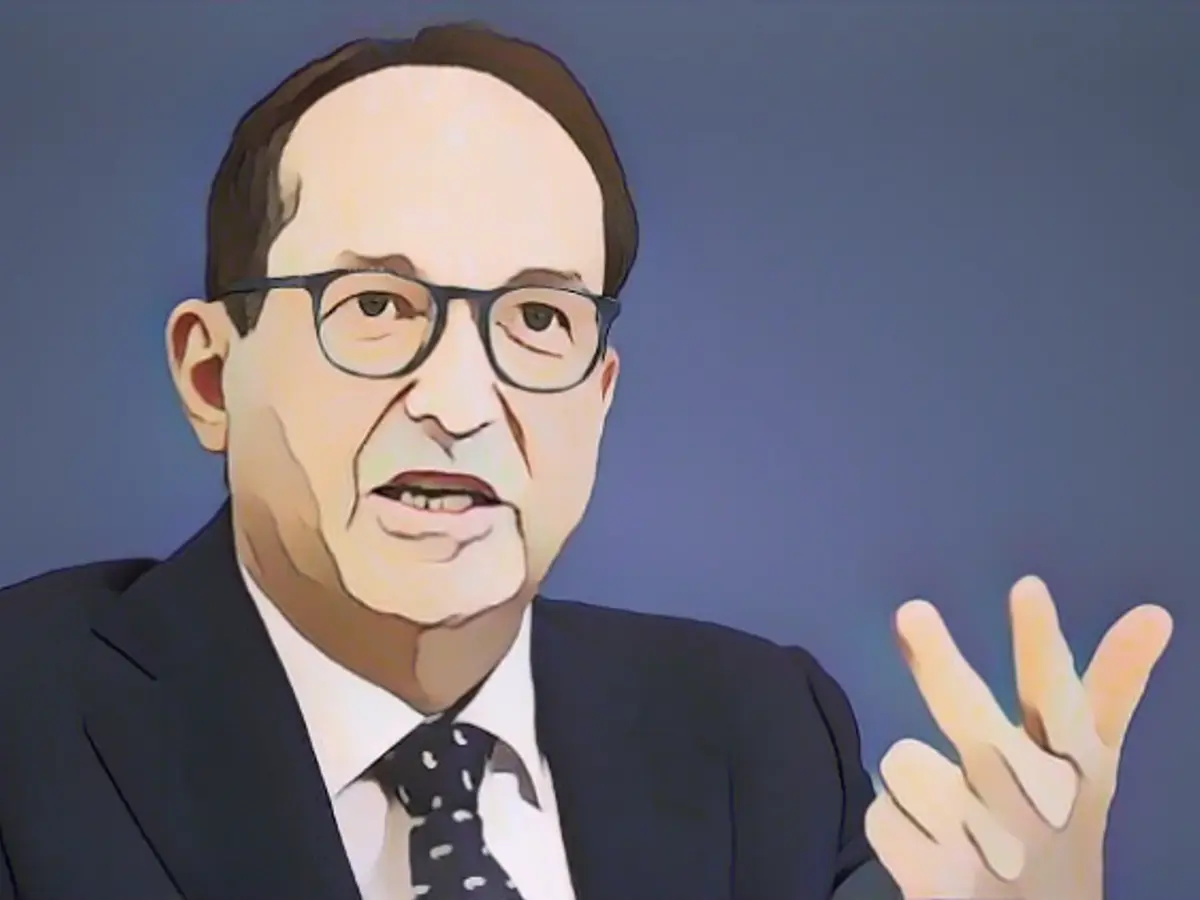"There's still a lot to come in 2024"
In the budget crisis, Federal Finance Minister Lindner wants to present a supplementary budget for 2023 on Wednesday. The ZDF talk show "Maybrit Illner" will discuss how the crisis can be brought under control.
The budget crisis that arose following a ruling by the Federal Constitutional Court last Wednesday has the federal government firmly in its grip. Federal Finance Minister Christian Lindner therefore wants to present a supplementary budget for this year next Wednesday. To do so, the finance minister will have to slaughter a sacred cow: The debt brake is to be suspended again this year. The minister and FDP leader had previously ruled this out. But what happens next? This is what the guests on Maybrit Illner's ZDF talk show will be discussing on Thursday evening.
FDP parliamentary group leader Christian Dürr tries to make the best of the muddled situation. The ruling has two key features: Credits that had not been spent in the past should not be carried over to other years. And there must be a direct factual connection. This had been common practice in the federal states, which the federal government would now put an end to. Dürr explained that no additional debt would be incurred in the supplementary budget.
Nevertheless, the federal government will now have to make do with significantly less money, explains Monika Schnitzer, Chair of the German Council of Economic Experts. According to her, 60 billion euros are missing from the Climate and Transformation Fund (KTF), with 160 billion coming from the Economic Stabilization Fund (WSF). "If that is added up now, we are already at half a federal budget," says the scientist. In fact, the federal budget for 2023 should have expenditure of 476 billion euros. However, the 220 billion euros that are now missing have nothing to do with this for the time being.
Monika Schnitzer also points out another dimension of the ruling: The uncertainty of the population and the economy. "It's slowing down the economy, it's slowing down the propensity to invest, it's slowing down consumer sentiment," she says.
New taxes? Not with the FDP
CSU state group leader Alexander Dobrindt is also aware of this. "We now have clarity for 2023, but not for 2024. There is still a lot to come," he says. However, the Federal Constitutional Court has also given the legislature relatively wide leeway, which it must know how to use. The opposition will be keeping a close eye on the government. "We don't want to cause the traffic lights any more difficulties than they have already caused themselves. But we will make sure that it is legally compliant and that no further fraud or further attempts to break the constitution with the next budget are pre-programmed."
One possibility for a constitutional budget next year could be the introduction of new taxes, says economist Schnitzer. "We can't pretend that we can get out of this without new costs, and someone has to bear them. And we could think about whether we could bear these costs by letting the people who can afford it share in them." An energy tax could have been introduced last year.
Christian Dürr does not agree with this. He is counting on more private investment from the private sector, especially when it comes to converting to new energies. "We need to get away from the idea that we have a kind of subsidy economy," he says.
"Designing the debt brake more intelligently"
Baden-Württemberg's Finance Minister Danyal Bayaz is also in favor of fewer state subsidies. We need to prioritize, he said on "Maybrit Illner". At the same time, he calls for more bureaucracy reduction and a discussion about the current debt rules. "The debt brake was an achievement, but it needs to be designed more intelligently to enable investment. And I believe we need to have this discussion now."
CSU politician Dobrindt is focusing primarily on savings for the 2024 budget. He wants to cut the heating law and not introduce basic child protection. However, he will not be able to make any savings in this area in the 2024 budget, as it is not due to start until 2025.
He is not sure whether the traffic light coalition will last until then. "I don't yet see that the budget dispute can be resolved in 2024 with this traffic light coalition. Whether this will mean that this traffic light coalition will no longer be able to govern and new elections will be called is too early to say at the moment. But I think you have to be prepared for pretty much anything with them."
The two talk show guests from the traffic light coalition, Dürr and Bayaz, are not worried about the dissolution of the coalition. Not even Monika Schnitzer. She is hoping for better cooperation within the coalition. It will be interesting to see whether the shock of Karlsruhe can really help to unite the coalition a little.
In response to the budget crisis, discussions on controlling the situation will be held on Maybrit Illner's ZDF talk show on Thursday evening. Despite the need to present a supplementary budget, Federal Finance Minister Lindner and the FDP had previously ruled out suspending the debt brake again. Now, the minister is considering doing so as part of a traffic light coalition government, which has been faced with significant financial challenges as a result of a ruling by the Federal Constitutional Court. This ruling has led to a decrease in funds available for the federal budget, especially from the Climate and Transformation Fund and the Economic Stabilization Fund. To cope with the reduced budget, economist Monika Schnitzer suggests the possibility of introducing new taxes, stating that "we can't pretend that we can get out of this without new costs, and someone has to bear them." However, FDP parliamentary group leader Christian Dürr opposes this idea and instead proposes stimulating private investment for energy conversions.
Source: www.ntv.de








